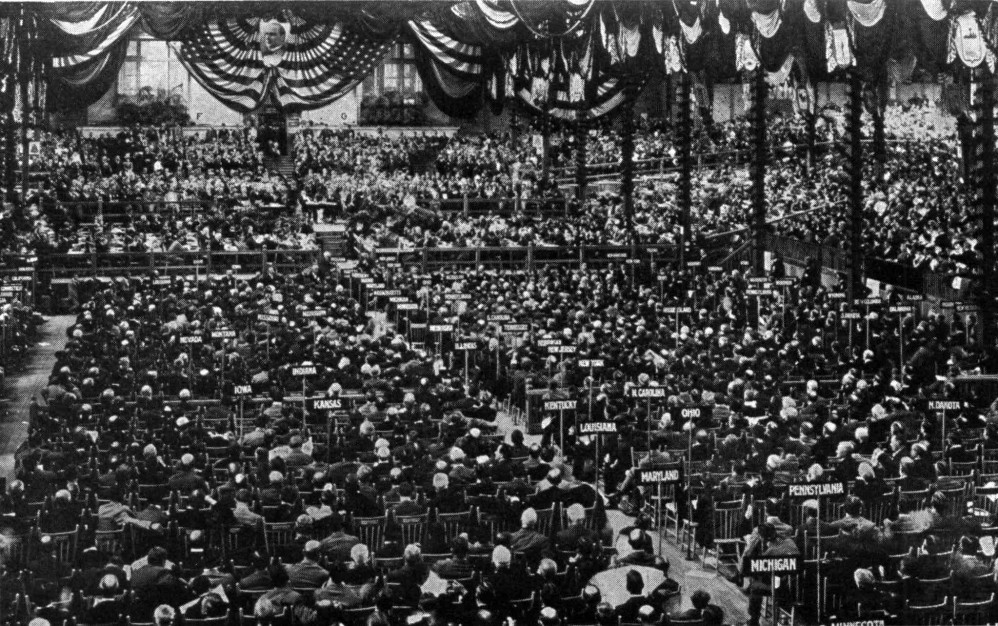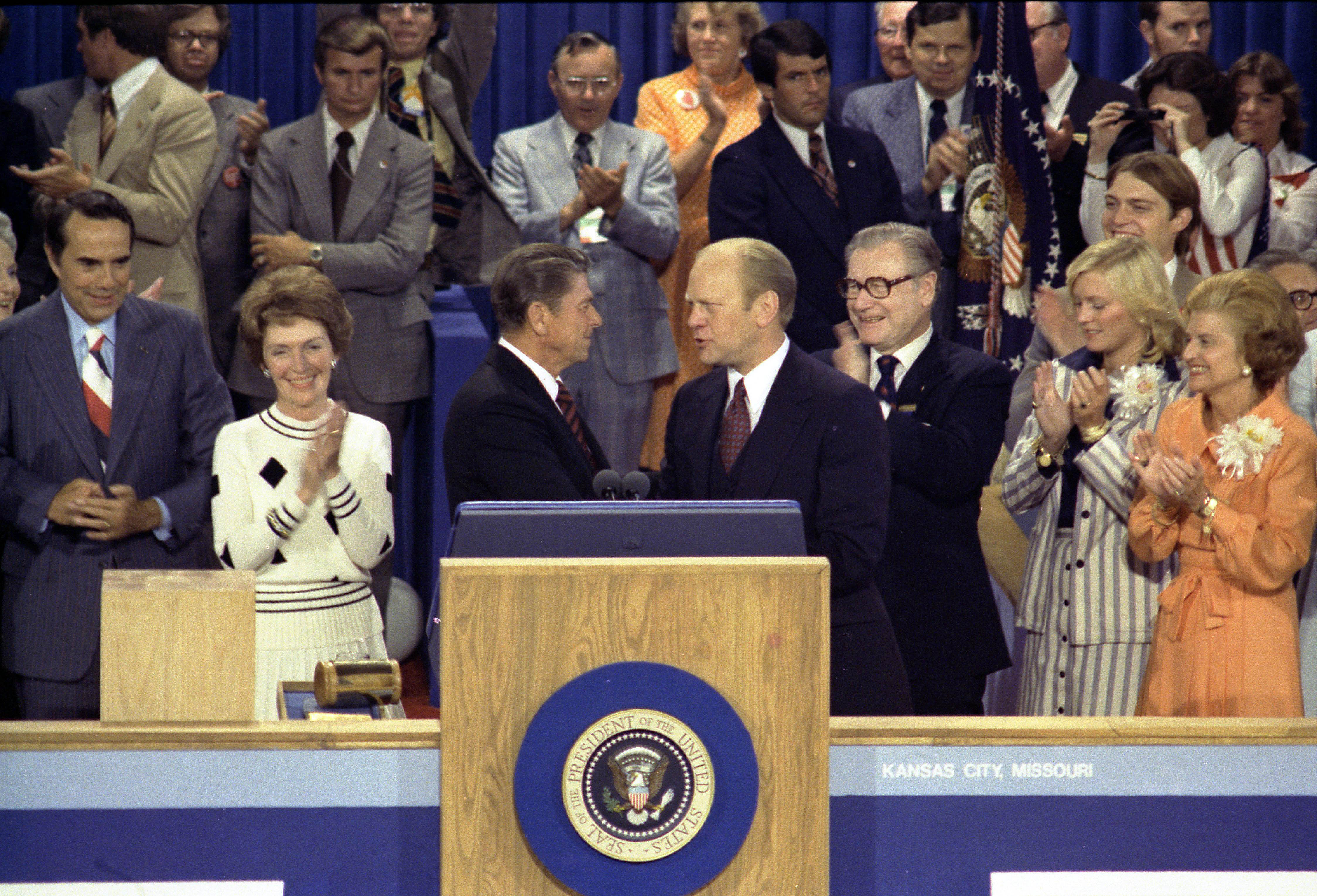Bill Brock, Bob Dole, Haley Barbour, Jim Nicholson, Clayton Yeutter, Marc Racicot and Mel Martinez—all former national chairmen of the Republican National Committee—write:
The American people will be witnesses to an unusual, though not unprecedented, exercise in democracy this July. The Republican Party is almost certain to hold a contested, open race for its presidential nomination at its National Convention in Cleveland.
In recent years, both parties have had de facto nominees who secured a majority of the delegates well before their conventions convened. The last contested convention in which the outcome was in doubt until the roll call was in 1976, when Gerald Ford narrowly defeated Ronald Reagan for the Republican nomination. That was 40 years ago, so many voters and most political reporters have never seen such a contest.
 |
American political parties have chosen their nominees for president through conventions composed of delegates from every state since the advent of parties more than 200 years ago. The genius of the convention system is that it seeks to produce consensus nominees with broad support in their parties. It accomplishes this with the simple proposition of majority rule. If no one obtains a majority of delegates on the first ballot, a second ballot is conducted, then another and another, if necessary to produce a nominee with majority support.
Delegates to the conventions are chosen—by primary voters, caucus attendees, or under local party rules—for their knowledge of the candidates, good judgment about what it takes to win the general election and willingness to rally around the winner. Today some state laws mandate that delegates vote for the winner of the primary in their state for one or more ballots. It is important to stress that an unpledged delegate may vote for anyone he or she chooses at any time.
Those delegates who are pledged or bound to candidates by state law, state party rule or state convention instruction must vote for the candidate to whom they are pledged regardless of whether that candidate is nominated on the convention floor, so long as they are so bound. Once satisfied, these same laws release the delegates to exercise their own independent judgment. Thus, the laws recognize that flexibility is necessary to implement majority rule.Read the rest of this WSJ op-ed HERE.
If you like what you see, please "Like" us on Facebook either here or here. Please follow us on Twitter here.





1 comment:
http://www.breitbart.com/2016-presidential-race/2016/04/25/colorado-3/
Sometimes you have to speak up and complain.
Post a Comment